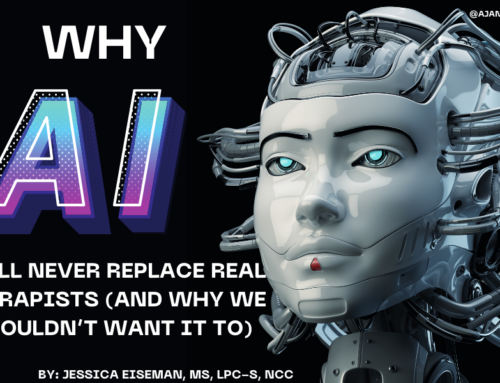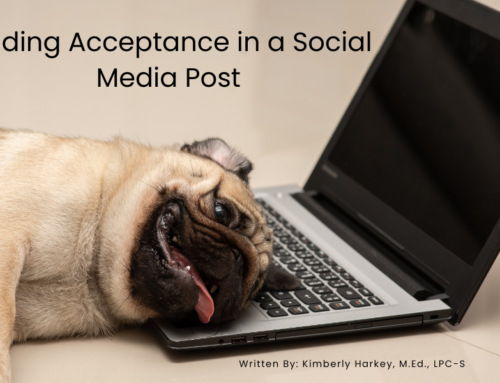Maybe You Should Read the book “Maybe You Should Talk to Someone”
Written by: Kristen Suleman, M.Ed., LPC
“Here are some people who might benefit from Lori Gottlieb’s illuminating new book: therapists, people who have been in therapy, people who have been in relationships, people who have experienced emotions. In other words, everyone” – A.J. Jacobs
I have been hearing about this book for a while, ya’ll. It’s one of those books that just kept popping up everywhere for me (and not just because of creepy internet algorithms). It felt like everyone in the therapy world was raving about it, almost to the point where I became irritated when I came across it… mainly because I am going through a “not buying books phase”. This is due to my previous phase, the “buy every book that interests me professionally or personally, put books in a never-ending stack of books, and stress out about the stack phase”. Give me all of the knowledge.
Thankfully, a colleague and friend whom I trust dearly encouraged me to read this one and to read this one now. I was even fortunate enough to borrow it from another colleague. I had no excuses left.
Spoiler alert: I really enjoyed this one. There is so much humanity in this book. As the intro quote implies, the book truly has something for everyone. It tackles relationships, stress, break-ups, family, work, illness, purpose, death, grief, meaning – the list goes on and on. While reading it, I laughed, I cried, and I ugly cried (although I would argue that all tears are welcome and beautiful in their own right, just like all aspects of emotional expression – can you tell I’m a therapist? 
In the book, the author (Lori) brings us into her world as a therapist, into the world of her clients, and into her world AS a client in therapy herself (FYI, it is super common, as well as encouraged, for therapists to have their own therapists – therapists are human after all and we have our own struggles too). We see her experience unfold as she engages in therapeutic work from the clinician’s side as well as from the client’s side, and the interconnectedness between the two.
As a therapist, I want to thank Lori for articulating the intricacies and nuances of therapeutic work in such a relatable way. She sprinkles snippets of psychology and human nature all throughout the book – countless times I found myself in awe of how she broke down these big complex concepts into something any of us might say in a casual conversation with friends. I also want to thank her for describing the amazing growth and profound breakthroughs that occur throughout therapy, as well as the impact that bearing witness to these experiences with our clients can have on our own lives.
As a human being who has gone to therapy myself, I want to thank Lori for normalizing the experience of going to therapy. Her words help create more understanding, compassion, and awareness of the fact that at the end of the day, we all experience things in life that need to be processed with someone who gets it and can help us find our way through it. I also want to thank her for demystifying the experience of therapy. Let’s face it: there is still a lot of misinformation and stigma out there surrounding therapy. If you’ve ever wondered, “what is therapy like?” this book may be a great place for you to gain more understanding of the process.
Because that is what therapy is – a process; it’s not a quick fix. It is a shared journey taken between you and your therapist. As the therapeutic relationship grows, the journey together can be unbelievably fulfilling, validating, and healing. It is in that shared space that profound, life-changing stuff takes place. One of the biggest themes of the book is this simple fact: we grow in connection with others. The relationship between a therapist and a client is unique, but when we strip it down, it is two human beings connecting with one another. Because the truth is, we all need to talk to someone.




